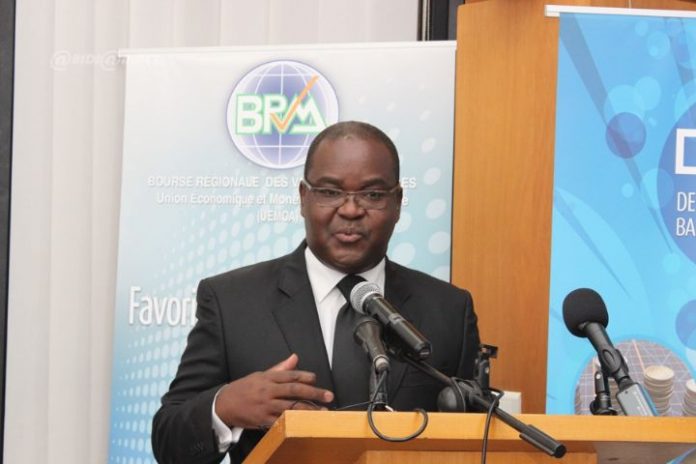Africa’s top-performing securities exchange, the Bourse Régionale des Valeurs Mobilières, wants to create a mini bond exchange where small and medium-size enterprises can raise capital. Speaking to reporters in New York in May, BRVM CEO Edoh Kossi Amenounve said Africa’s SMEs need to be well financed, but lack the options big companies have. He also said Africa’s securities markets benefit greatly from foreign investors but should not be highly exposed to the comings and goings of their investment strategies.
According to the World Economic Forum, SMEs create about 80 percent of the continent’s jobs, establishing a new middle class and fueling demand for new goods and services. “Big companies do not need to raise debt via the market. It’s the SMEs that need to raise money using the bond market, but the size of the issue is too small for our markets,” Amenounve said. “What we are trying to do — and I think it’s very innovative — is to take the model of mini bonds in Europe. If we can do that in our market — mini bonds issued by many SMEs packaged as a special vehicle and sold through the securitization process — that can be very, very helpful for African stock exchanges to develop the bond market.”
Headquartered in Abidjan, Cote d’Ivoire, the BRVM serves the members of the West African Economic and Monetary Union (Benin, Burkina Faso, Côte d’Ivoire, Guinea Bissau, Mali, Niger, Senegal and Togo) whose currency, the CFA franc, is pegged to the euro. The BRVM is among the world’s most successful integrated regional exchanges, and it is Africa’s sixth largest securities exchange by market capitalization, at $12.8 billion for equities and $2.7 billion for debt in 2015. Its CEO was in New York for “a strategic dialogue” with U.S. frontier investors, stockbrokers and market specialists, to update them on macroeconomic developments within the West Africa Union (WAEMU), comment on the last year’s performance of the BRVM, and give an outlook and key information on the perspective of the BRVM for the next four years.
Addressing reporters following that dialogue, Amenounve said a minibond board would appeal to SMEs. “If you are a very, very small company and need to raise only $1 million every three or four years but you have to comply with all the rules of the stock market, that is not so interesting for you,” he explained.
In moving forward with a minibond board, he said, the BRVM wants to involve a securitization company to package the bonds and a rating agency to rate the security issued from this process, which then can be sold to retail investors. “I think that can be an innovative way for African capital markets to develop the bond market, and that can also help the financing of the SMEs rather than the equity board. For Africa for the next five to ten years, it will be more useful to have a mini-bond market with incentives coming from government to encourage the SMEs to raise money by debt because that is their need today. When they go through this process, maybe in five or ten years they can easily open capital with the equity market,” Amenounve said.
The exchange currently is looking at certain SMEs for stock market listing. “We need to prepare these SMEs to become medium, even small big companies to take advantage of a listing. The SMEs we are targeting are more medium-big companies than small, small, small companies. And the best way to prepare them and to have them in the market is by using private equity funds,” Amenounve said. “Because these private equity funds have been investing in these SMEs for five to seven years, they have already prepared them in terms of governance, in terms of financial information disclosure.”
Although he is courting U.S. and other foreign investors — he was in Dubai last April and plans to be in London in September — Amenounve says it is imperative for Africa to develop a local investor base. “In our African markets we need international investors because they bring money, but they also bring efficiency in the market,” he said. Ideally, however, foreign participation should be 25 percent to 30 percent of the value.
“African markets need to be open to international investors, but not highly exposed to their movement, which can inflow and outflow depending on many factors they have to deal with in their investment strategy. If we take the case of Nigeria, South Africa, and Kenya this year, many frontier market investors outflowed from these markets only because of the situation in emerging markets and the situation in oil prices or raw material prices and so on. This contributed to the decline of these markets. If there is a solid base of local investors, these local investors are in our markets to remain in our markets because they don’t have any other opportunity to invest outside our countries. They have a longer-term investment strategy than international investors in Africa,” Amenounve said.













